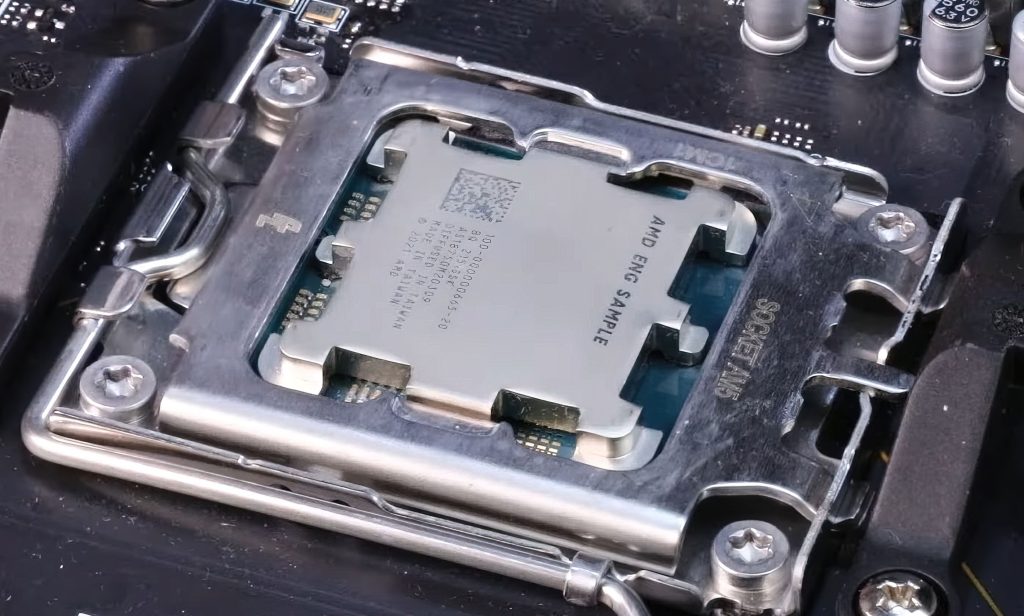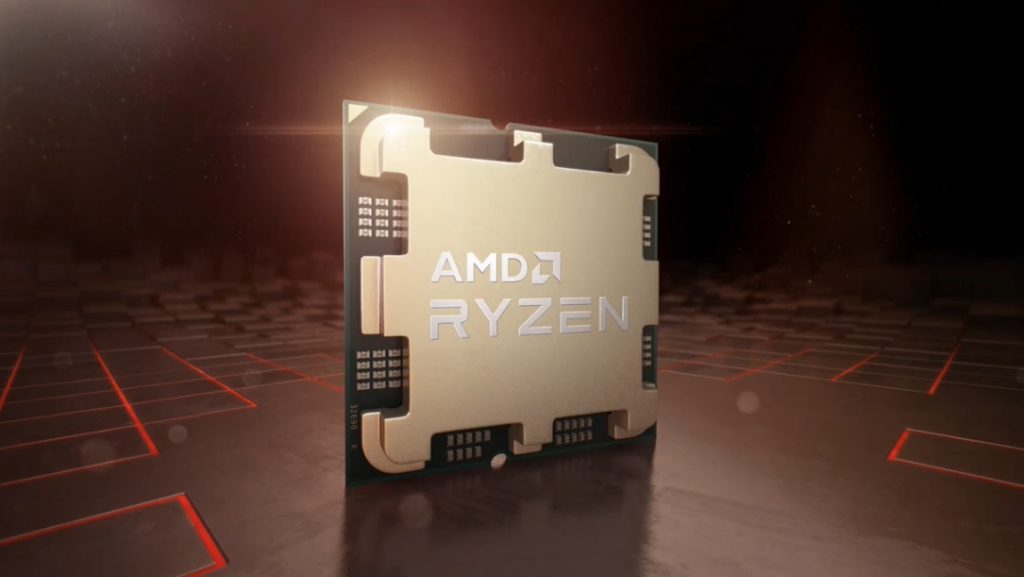AMD recently shared more details about the Ryzen 7000 series and AM5 platform, both of which are set to launch in Q3 this year. We've only seen a render of what the new IHS design looks like for the new chips, which is markedly different from previous AMD processors, but with engineering samples beginning to do the rounds, new leaks are taking place. In a video published this week, MSI gave us our first glimpse at a Ryzen 7000 series processor in the flesh.
On YouTube, a new video from MSI showcasing how to install an AM5 processor was uploaded, before later being removed. While the video is no longer live, its existence has been well documented. This tweet from Ghost_Motley still allows us to see the title of the video, and Videocardz was able to take screenshots prior to the video going offline. Now without further ado, here is your first look at a real Ryzen 7000 processor, right next to the official render AMD released earlier in the week:
This isn't a final, retail version of the processor, but rather an engineering sample for vendors to test their upcoming products, such as motherboards or memory modules. If we zoom in on the chip, we can even see its OPN code and year of production. This particular sample was created in 2021, and based on former benchmark leaks, we can estimate that the sample shown here is a 16C/32T Ryzen 9 7950X, assuming AMD doesn't make any changes to its processor naming scheme.
AMD plans to release the Ryzen 7000 series processors later this year, alongside the first AM5 motherboards.
KitGuru says: The process of installing a Ryzen 7000 chip looks a lot like mounting any consumer Intel processor from the last ten years, so don't expect to encounter any difficulties when building a new system with a Ryzen 7000 chip.
 KitGuru KitGuru.net – Tech News | Hardware News | Hardware Reviews | IOS | Mobile | Gaming | Graphics Cards
KitGuru KitGuru.net – Tech News | Hardware News | Hardware Reviews | IOS | Mobile | Gaming | Graphics Cards




